Becoming the Head of Marketing in a B2B company is a significant career milestone. It's not just about launching creative campaigns or posting content on social media; it’s about shaping the direction of a company's entire marketing strategy. It’s a blend of creativity, data-driven decision-making, and leadership.
If you’re aiming for this role, you’ll need to understand what it takes and how to get there.
This article was written based on a webinar that we recently ran with Sara Stella Lattanzio. If you prefer to watch the webinar, here's the link. Otherwise, continue reading.
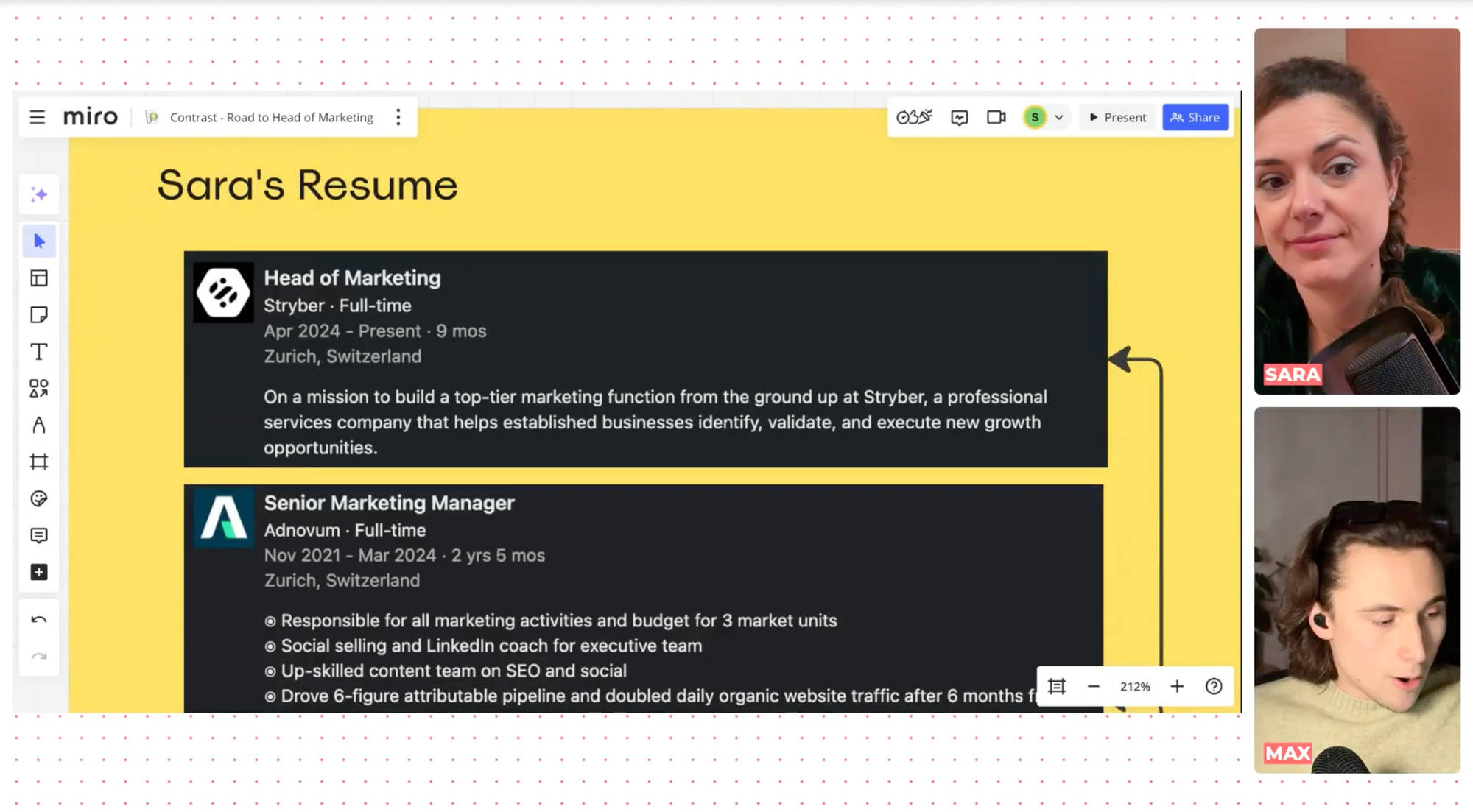
What Does a Head of Marketing Do?
Think of the Head of Marketing as the captain of a ship. This person is responsible for steering all marketing activities, from building a strong brand image to launching ad campaigns that really connect with customers. But it’s about more than just coming up with creative ideas—it’s about making sure those ideas are aligned with the company’s broader goals and strategy.
As the Head of Marketing, you'll need to think strategically about how your marketing initiatives can drive business growth and support the overall objectives of the company.
Your responsibilities will typically include:
Developing and executing marketing strategies
A crucial reminder is to develop marketing strategies that are closely tied to the company’s goals. This means understanding what the business needs and figuring out how marketing can help achieve those goals, whether it’s increasing brand awareness, generating leads, or boosting sales.
Overseeing the marketing team
It's important to oversee the marketing team and guid them to deliver your vision. As a leader, you’ll inspire, motivate, and support your team to make sure everyone is aligned and working toward the same objectives.
Collaborating with other departments
It's highly important to collaborate with other departments, especially sales, to ensure marketing is in sync with the rest of the organization. The best marketing results come when sales and marketing teams work together seamlessly, so you’ll often be in meetings with different departments to share insights and ensure everyone’s on the same page.It's important to oversee he marketing team and guid them to deliver your vision. As a leader, you’ll inspire, motivate, and support your team to make sure everyone is aligned and working toward the same objectives.
Measuring and analyzing performance
Measuring and analyzing performance is another important factor such as using data to track how campaigns are performing. This means constantly reviewing key metrics like website traffic, lead conversion rates, and customer engagement, and using that information to adjust and optimize your marketing strategies.
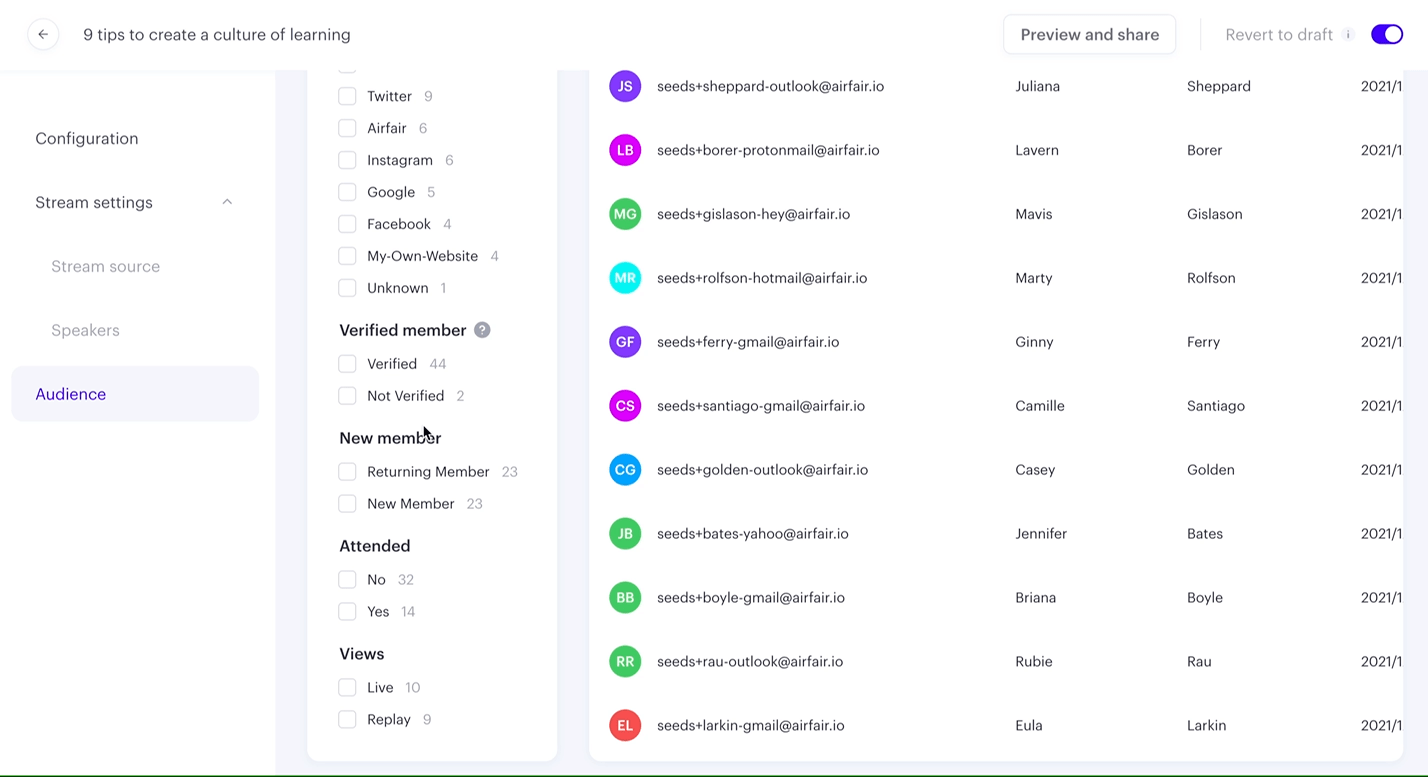
Managing budgets
Managing budgets is critical since it ensures that marketing resources are being used efficiently. You’ll need to make sure that the money spent on marketing campaigns, tools, and staffing is delivering the best return on investment and supporting the company’s growth in the most effective way possible.
In short, as Head of Marketing, you’ll be both a creative thinker and a data-driven strategist, ensuring that everything you do helps move the company toward its larger business goals.
Skills You’ll Need to Succeed as Head of Marketing
To climb to the role of Head of Marketing, you’ll need to develop a diverse skill set that covers both the strategic and operational sides of the job. It’s a blend of creativity, leadership, and the ability to analyze data and make decisions that drive business success.
Here are the key skills you’ll need to thrive in this role:
1. Strategic Thinking
As Head of Marketing, you’ll need to think beyond just running campaigns or executing tactics. It’s all about seeing the big picture. This means understanding your company’s mission, vision, and business goals, and figuring out how marketing fits into the overall strategy. You won’t just be focusing on short-term wins or individual campaigns; you’ll be aligning your efforts with the long-term growth and success of the company.
Strategic thinking involves asking questions like: How can marketing help drive more sales? What are the key pain points for our customers, and how can we address them through our marketing? How can we position the brand to stand out in a competitive market? The answers to these questions will guide your decisions and ensure that your marketing initiatives support the overall business strategy.
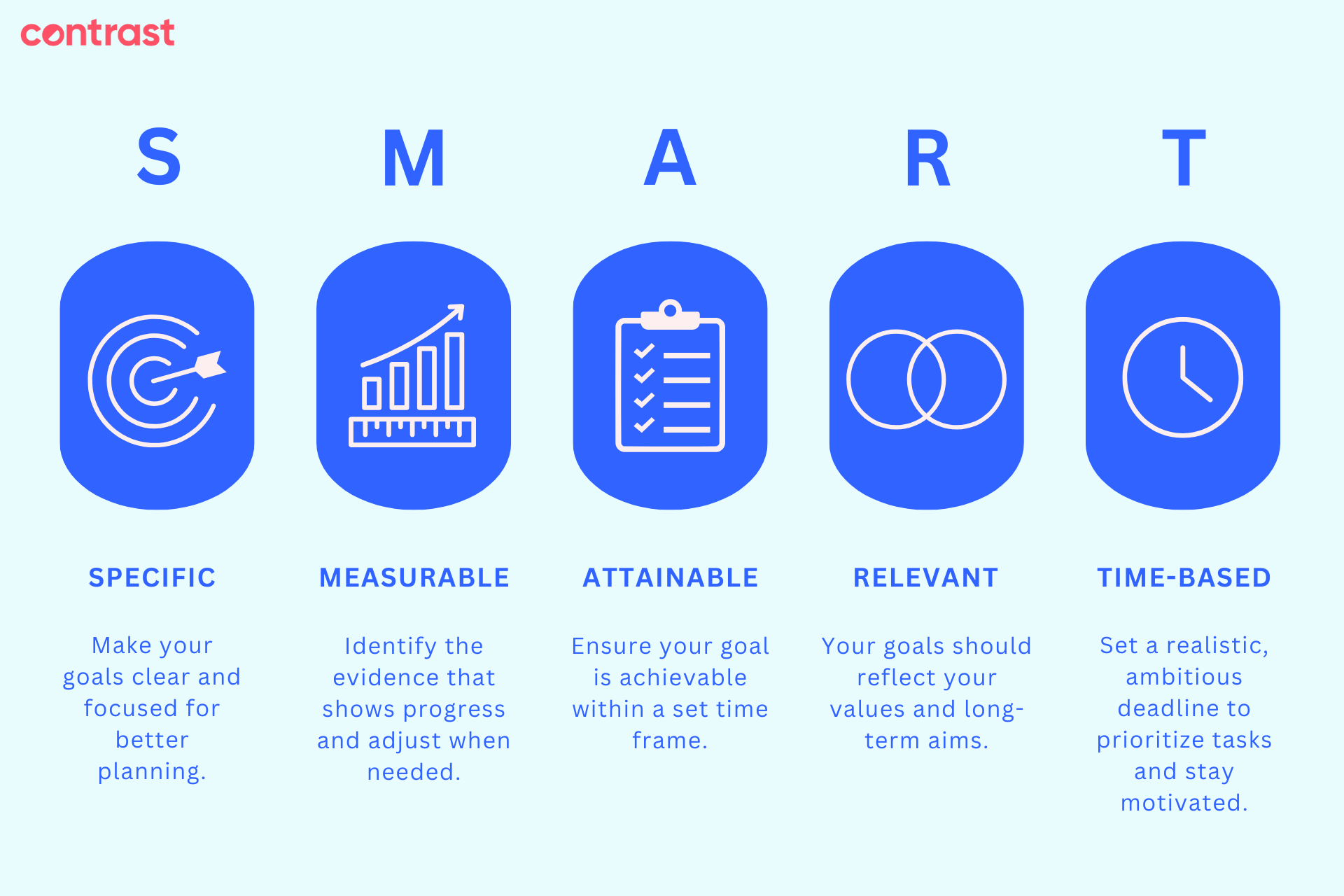
2. Leadership
Being a great leader isn’t just about managing people—it’s about inspiring and motivating your team to deliver their best work. As Head of Marketing, you’ll be responsible for leading a team of marketers, and your ability to guide them will be critical to your success. You’ll need to set a clear direction, define goals, and support your team through coaching and mentorship.
Leadership also means creating a positive and creative work environment where your team feels empowered to take risks, share ideas, and collaborate. You’ll foster a culture of accountability, where everyone understands their role and how their contributions help the company achieve its goals. Good leadership is also about leading by example—if you’re open to feedback, flexible in your approach, and willing to roll up your sleeves when needed, your team will follow suit.
3. Communication Skills
Being Head of Marketing means you’ll be interacting with a wide range of people—your team, senior leadership, other departments (like sales and product), external partners, and sometimes even customers. The ability to communicate clearly and persuasively is a must-have skill. Whether you're presenting a marketing plan to the CEO or explaining campaign performance to your team, you’ll need to articulate your ideas in a way that is easy to understand and compelling.
Communication is also about being a good listener. You’ll need to understand the needs and goals of other departments and stakeholders and ensure that your marketing efforts align with those. Strong communication skills will help you navigate challenging conversations, collaborate effectively, and ensure everyone is on the same page.

4. Flexibility and Adaptability
The world of marketing is always changing. New technologies, trends, and platforms pop up all the time, and what worked yesterday might not work tomorrow. As Head of Marketing, you need to be adaptable and ready to pivot when needed. Whether it’s a change in customer behavior, a shift in market trends, or a new tool that can improve your campaigns, you’ll need to embrace change and stay ahead of the curve.
Being flexible also means encouraging your team to try new things, experiment with different approaches, and learn from both successes and failures. In a fast-paced environment, adaptability is key to staying competitive and ensuring your marketing strategy remains effective.
5. Data Savvy
In today’s B2B world, marketing decisions need to be driven by data, not just gut feeling. As Head of Marketing, you’ll need to be data-savvy—able to understand and interpret analytics to make informed decisions. Whether you’re looking at campaign performance metrics (like click-through rates, conversion rates, and ROI), tracking lead generation, or analyzing customer behavior on your website, data will play a central role in shaping your strategy.
Being able to measure and analyze performance means you’ll be able to identify what’s working, what’s not, and where you can make improvements. For example, if your lead conversion rate isn’t as high as expected, you’ll be able to dig into the data to understand why and make adjustments accordingly. Your ability to use data to optimize marketing efforts will not only improve campaign results but also help demonstrate the effectiveness of marketing to other departments and leadership.
To succeed as a Head of Marketing, you’ll need to combine a strategic mindset with strong leadership skills, clear communication, adaptability, and a solid understanding of data. These skills will help you lead your team effectively, align marketing efforts with business goals, and drive growth for your company.
Ultimately, it’s about being a well-rounded leader who can think strategically, make data-driven decisions, communicate effectively, and inspire a team to deliver impactful marketing that moves the business forward. If you work on developing these key skills, you’ll be well on your way to success in this exciting and dynamic role.
Your Career Path: How to Get There
Climbing the ladder to become Head of Marketing is a journey that takes time, experience, and continuous growth. It’s not something that happens overnight, but with a clear path and a focus on developing key skills, you can make it happen. Here’s a step-by-step guide to help you build your career and move toward that top marketing role.
Starting Out: Build a Strong Foundation
If you’re just beginning your marketing career, it’s important to lay a solid foundation. The first step is to learn as much as you can about different areas of marketing. In the early stages, aim to become a T-shaped marketer—someone who has a broad understanding of multiple marketing disciplines but also deep expertise in one area you’re passionate about.
For example, you might have a good grasp of SEO, content marketing, social media, email marketing, and paid ads, but you focus on becoming an expert in one area, like content creation. Understanding how each piece fits into the larger marketing strategy will give you a well-rounded perspective and make you more valuable in any marketing role.
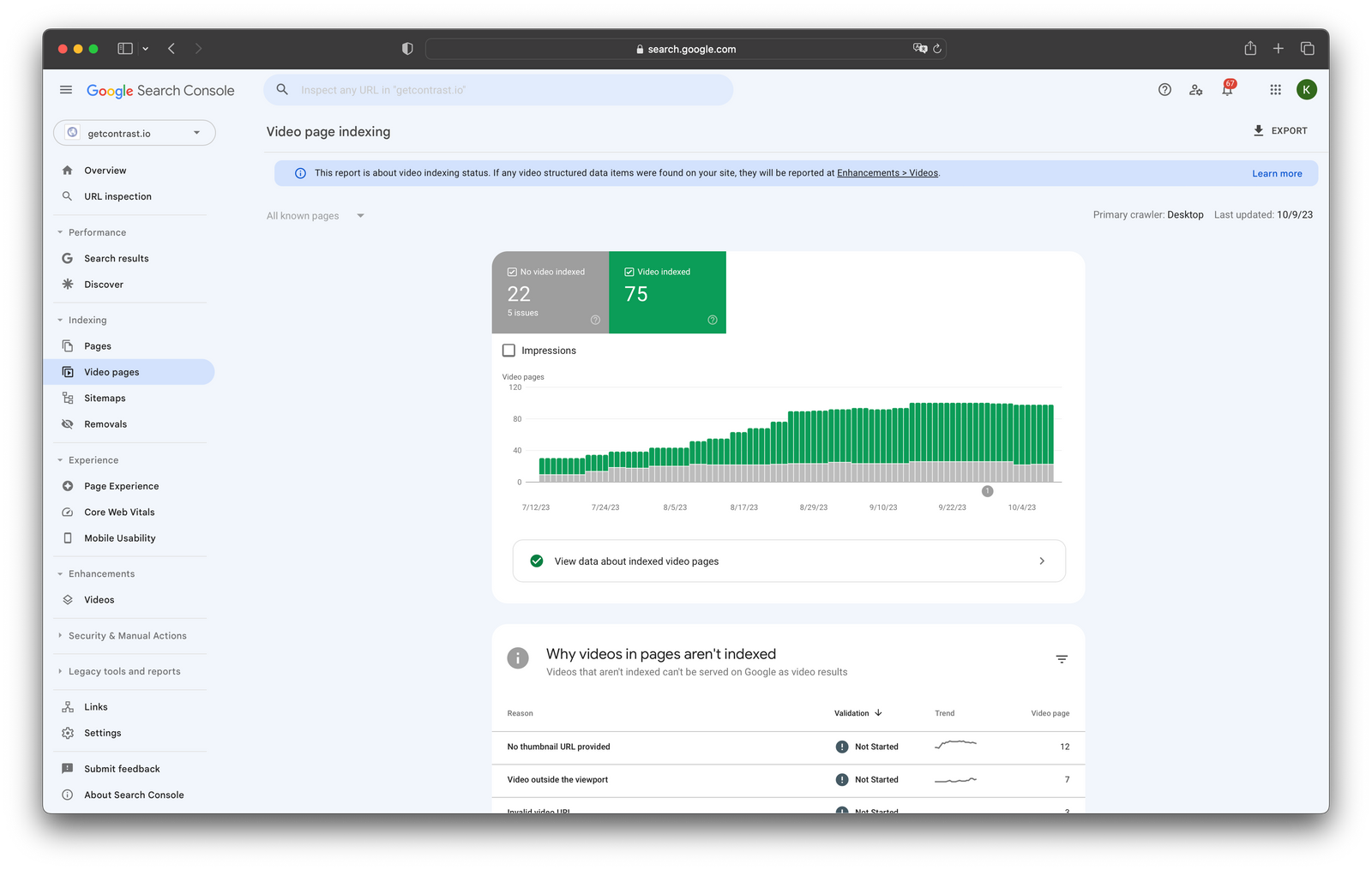
Moving Up: Take on More Responsibility
As you gain more experience and develop your skills, start looking for opportunities to take on more responsibility. This might mean leading smaller projects or stepping up to manage a small team. At this stage, you’ll want to start thinking more strategically about marketing. It’s not just about executing individual campaigns or tasks; it’s about understanding how your efforts fit into the company’s larger business picture.
Start asking yourself questions like:
How do my campaigns align with company goals?
How can we generate more leads, increase sales, or boost brand awareness?
This is the time to show that you can think beyond tactics and start considering the broader business strategy. Whether you’re running campaigns or working on branding, it’s important to demonstrate that you can make decisions that help the company grow.
This is also when you’ll begin to focus on your leadership skills. Even if you’re not leading a large team yet, taking ownership of projects and guiding others will help you develop those leadership muscles.
Advancing Further: Leadership and Strategy
As you move further up in your career, your role will shift from managing tactics to focusing more on high-level strategy, leadership, and business alignment. At this point, you’ll be expected to think and act more like a business leader than just a marketing manager. Your job will be about setting the direction for marketing, aligning it with the company’s overarching goals, and leading your team to deliver results.
Here’s where your ability to develop and communicate marketing strategies will really shine. You’ll be responsible for creating long-term plans that support the company’s growth objectives.
At this stage, you’ll also be leading larger, more diverse teams, which means your leadership skills will need to evolve. You’ll be guiding a team of marketers, helping them grow in their careers, and motivating them to hit their targets.
Finally, cross-functional collaboration becomes even more important. As Head of Marketing, you’ll be working closely with departments like sales, product development, and executive leadership to ensure that marketing initiatives align with company priorities.
Climbing the ladder to Head of Marketing isn’t a straight path, and it won’t happen overnight. But by starting with a strong foundation, building your strategic and leadership skills, and focusing on how marketing fits into the bigger business picture, you can move toward the top role.
Challenges You Might Face as Head of Marketing
The journey to becoming Head of Marketing is exciting, but it’s not without its challenges. Along the way, you’ll face obstacles that test your strategic thinking, leadership, and ability to adapt.
Here are some of the common challenges you might encounter:
1. Balancing Short-Term and Long-Term Goals
Marketing is a bit like playing chess—you need to think several moves ahead. One of the biggest challenges as Head of Marketing is finding the right balance between immediate goals (like driving leads, launching a seasonal campaign, or hitting quarterly sales targets) and long-term objectives (like building a strong brand, establishing customer loyalty, or driving sustained growth).
It can be tough because these goals often seem to pull you in different directions. On one hand, you need to deliver quick wins to show results, but on the other, you must focus on initiatives that will position the company for success in the future.
2. Aligning Marketing with Sales
In many B2B organizations, there’s often a disconnect between marketing and sales teams. While both are working toward the same goal—driving revenue and growing the company—marketing and sales can sometimes feel like they’re speaking different languages.
For example:
Marketing might focus on generating leads and raising awareness, while sales might be looking for more qualified leads or deeper customer engagement.
As Head of Marketing, it’s your job to bridge this gap. Ensuring that marketing and sales are on the same page is crucial. You’ll need to align your marketing strategies with sales goals, understand what sales needs to succeed, and make sure your team is providing them with the right kind of support.
3. Measuring Success
One of the trickiest parts of being Head of Marketing is figuring out how to measure success. Unlike sales, where results are often directly tied to revenue, marketing doesn’t always provide immediate or clear metrics.
For example:
How do you measure the impact of a brand awareness campaign? Or how do you assess customer sentiment after a product launch?
The key is to develop Key Performance Indicators (KPIs) that help you track the effectiveness of your marketing efforts, even when the results aren’t as immediately obvious. Whether you’re tracking lead generation, website traffic, social media engagement, or customer feedback, having solid KPIs in place will allow you to demonstrate how marketing is moving the needle for the business. And even when things don’t go as planned, having metrics in place helps you make data-driven decisions to adjust and optimize your approach.
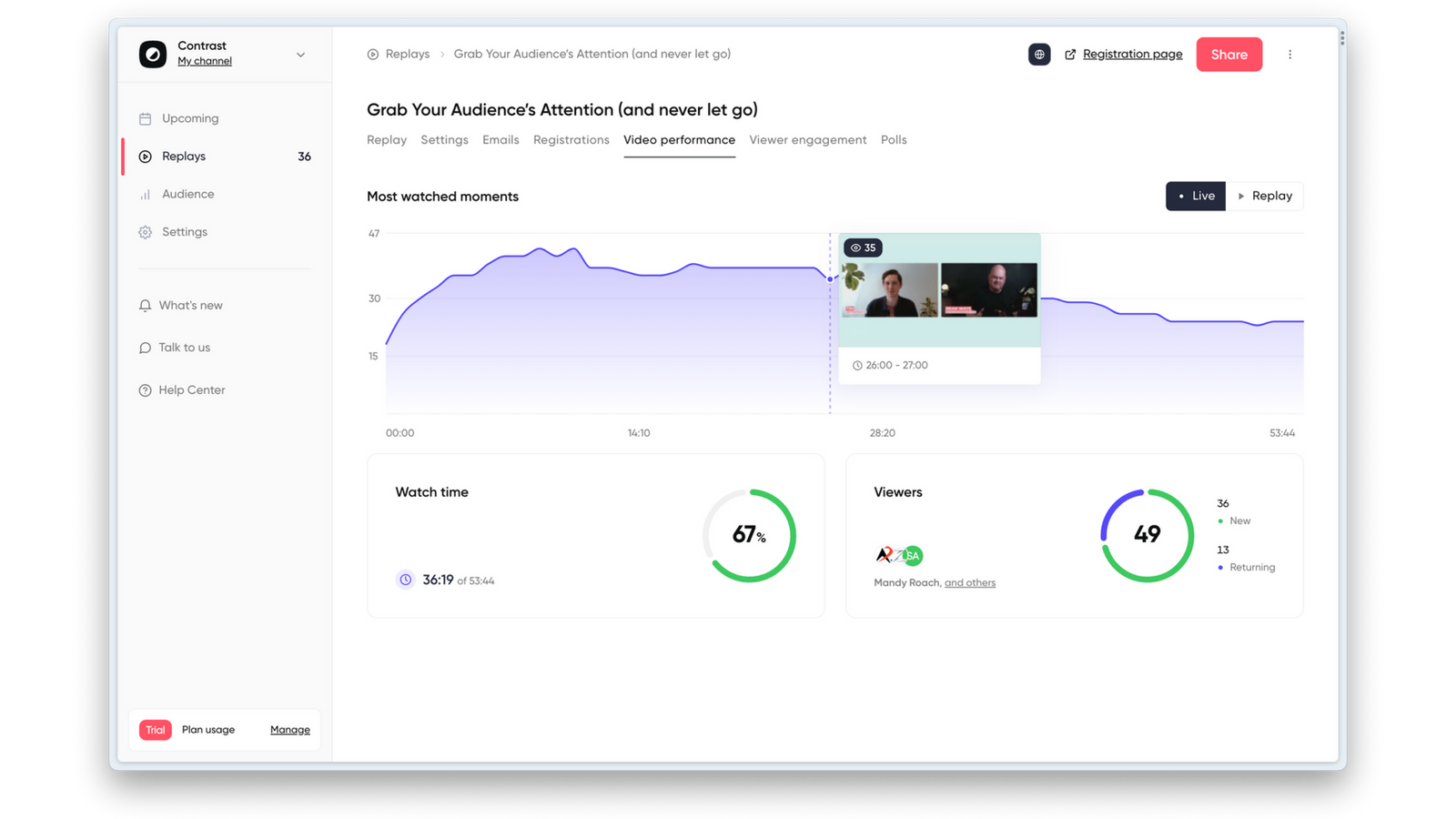
4. Building Your Team
At some point, as Head of Marketing, you’ll need to start building your team. Deciding whether to hire specialists or generalists can be one of the trickier decisions you’ll face. Specialists, like SEO experts or content strategists, bring deep expertise in one area, while generalists—people who can juggle multiple roles, like social media management and email campaigns—bring versatility and a wide range of skills to the table.
Which route you take depends on the specific needs of the company. If your company is in a growth phase and needs a lot of different marketing functions to be covered, hiring generalists might make more sense. However, if you’re looking to build a very specific aspect of your marketing strategy, such as paid media or content marketing, specialists could be the way to go. As Head of Marketing, you’ll need to understand what your team requires to execute your strategy and build your team accordingly.
Becoming Head of Marketing is an exciting challenge, but it’s filled with tough decisions and complex problems. Balancing short-term wins with long-term goals, aligning marketing with sales, measuring success through the right KPIs, and building the right team are just a few of the obstacles you’ll face. But by staying focused on the bigger picture, learning to adapt, and building strong relationships across the business, you’ll be well on your way to succeeding in this role.
Tips for Career Growth:
As you move through your marketing career, you’ll want to keep growing, learning, and pushing yourself to reach new heights. Whether you're just starting out or already on your way to becoming a Head of Marketing, there are some strategies you can use to accelerate your career progression.
Here are a few tips that can help you build your personal brand, showcase your expertise, and position yourself for leadership opportunities.
1. Share Engaging Clips from Webinars and Events
Webinars, conferences, and industry events are great opportunities to learn from others, but they can also be a goldmine for sharing your own insights. After attending or speaking at a webinar, consider sharing key takeaways on LinkedIn or other social platforms.
Don’t just post generic "I attended a great webinar" updates. Instead, create engaging clips or soundbites that highlight the most valuable points you learned or shared. You might record a quick video or create a short post summarizing a key idea.
This not only shows that you're continuously learning, but also positions you as someone who stays on top of industry trends. Over time, this helps build your thought leadership and demonstrates that you have valuable knowledge to share. It’s a simple yet effective way to stay visible and engage with your network.

Create Webinars to Engage Your Target Audience
Start for free up to 30 registrants. No credit card needed.
Start for free2. Highlight Your Key Insights to Show Thought Leadership
Your career experiences, both the wins and challenges, can be a great resource for others in the industry. As you gain more experience, start sharing insights based on your own journey. This could be anything from lessons learned on aligning marketing with business goals, to how you overcame specific challenges, like bridging the gap between marketing and sales teams.
The key here is authenticity. Don’t just share what others want to hear—share your true experiences, the ones that helped shape your understanding of marketing. Talk about what worked, what didn’t, and the steps you took to improve. Over time, this builds your personal brand and establishes you as someone who is not just executing marketing tactics, but actively shaping the field with your expertise.
For example, you could share an update on LinkedIn that says:
“When I started in marketing, I didn’t realize how critical aligning with the sales team would be for success. Here's how we built a collaborative strategy that increased our leads by 30%…”

3. Create Blog Posts and Articles Based on Webinars and Discussions
Webinars and internal meetings don’t just provide valuable insights—they can also serve as the perfect foundation for blog posts or articles through repurposing. After an event or even a team discussion, take a step back and think about how you can expand on those ideas for a wider audience.
For example, if you’ve just attended a session on the T-shaped marketer model, consider writing a blog post that explains the concept in more detail, how it helped you in your career, and how others can apply it. You could also tie in your experience of aligning marketing with business goals and offer tips on how to get buy-in from leadership.
The goal here is to provide valuable content that demonstrates both your understanding of marketing fundamentals and your ability to think critically about complex topics. Writing in-depth articles allows you to showcase your expertise, reach a larger audience, and establish yourself as a credible voice in your industry.
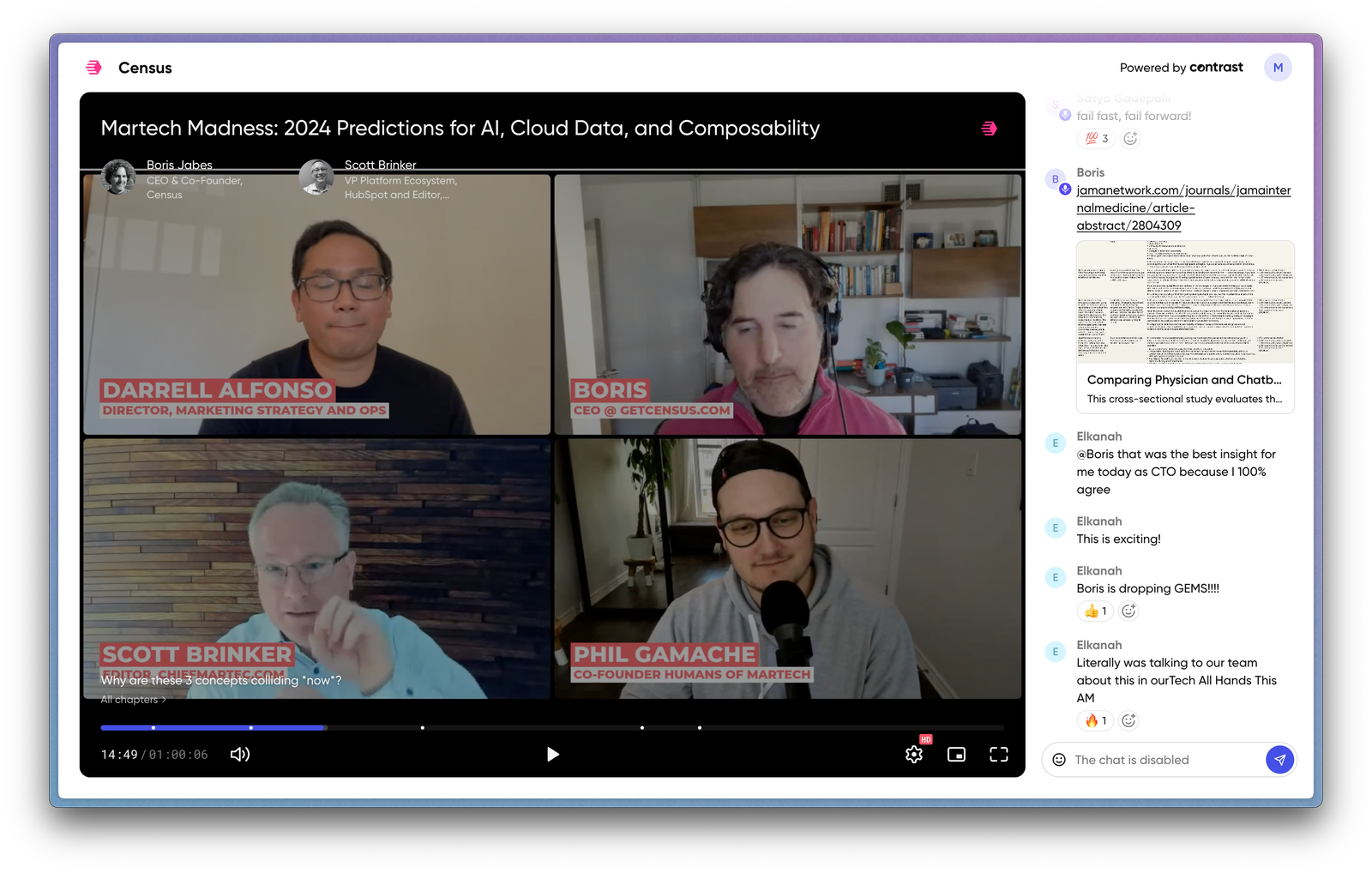
4. Engage with Your Network and Build Relationships
Growing your career isn’t just about what you know—it’s also about who you know. Building relationships with others in your industry, including senior leaders, fellow marketers, and other departments within your company, can open doors and create new opportunities.
Don’t be afraid to engage with others’ content on social media, attend networking events (whether virtual or in person), or simply reach out to someone you admire for advice. Engaging in meaningful conversations can help you learn from others, get new perspectives, and make connections that may lead to new career opportunities.
You can also create your own opportunities by collaborating with colleagues on cross-functional projects, sharing resources, or offering to help out in areas where you have expertise. These actions show that you’re a team player and help build your reputation as someone who adds value to the organization.
5. Take Risks and Get Out of Your Comfort Zone
One of the biggest barriers to career growth is staying in your comfort zone. If you want to become the Head of Marketing, you’ll need to step outside what feels easy and take on new challenges.
This might mean leading a new initiative, volunteering for a high-profile project, or even asking for more responsibility. The important thing is that you’re constantly pushing yourself to grow, learn new skills, and build confidence in your ability to take on bigger challenges.
For instance, if you’re comfortable running campaigns, try your hand at building a comprehensive content strategy or managing a larger team. Maybe you’ve been in a tactical marketing role—ask for the chance to take on more strategic work. These experiences will make you more well-rounded and help you develop the skills necessary to lead a marketing department.
6. Stay Curious and Keep Learning
Marketing is constantly evolving, and the best leaders are the ones who continue to stay curious. Whether it’s reading industry blogs, taking online courses, or listening to podcasts, make it a habit to invest in your personal development.
New technologies, trends, and strategies emerge regularly, and it’s essential to stay up-to-date. At the same time, don’t forget to learn from your own experiences. Reflect on what’s working, what isn’t, and how you can adjust your approach. Embrace a mindset of continuous improvement, and don’t be afraid to fail forward.

Create Webinars to Engage Your Target Audience
Start for free up to 30 registrants. No credit card needed.
Start for free7. Make Bold Moves
To really make progress in your career, you’ll sometimes need to make bold moves. This could mean switching roles, taking on an entirely new area of marketing, or pursuing a leadership opportunity that feels intimidating at first. But, often, it’s these bold steps that open the door to new growth and greater success.
Sometimes, making a big change could mean moving to a new company or asking for a promotion. If you're feeling under-challenged or stagnant, it’s okay to seek a position that will stretch your skills and allow you to grow. Similarly, taking on a leadership role, even if it’s outside your comfort zone, can help you gain the experience you need to eventually lead a marketing department.
The journey to becoming a Head of Marketing is full of learning, experimenting, and growing. By following these tips and continuously pushing yourself to improve, you’ll build the skills, connections, and confidence you need to succeed.
Wrapping It Up
Becoming the Head of Marketing is a rewarding career goal, but it takes time, strategy, and constant learning. By developing a wide range of skills, taking on increasing responsibility, and aligning your marketing efforts with the company's business goals, you’ll be well on your way to achieving this role.
Remember, it’s not just about doing marketing—it’s about making marketing work for the business. The best marketing leaders combine creativity with strategic thinking, data analysis, and strong leadership to drive results.
